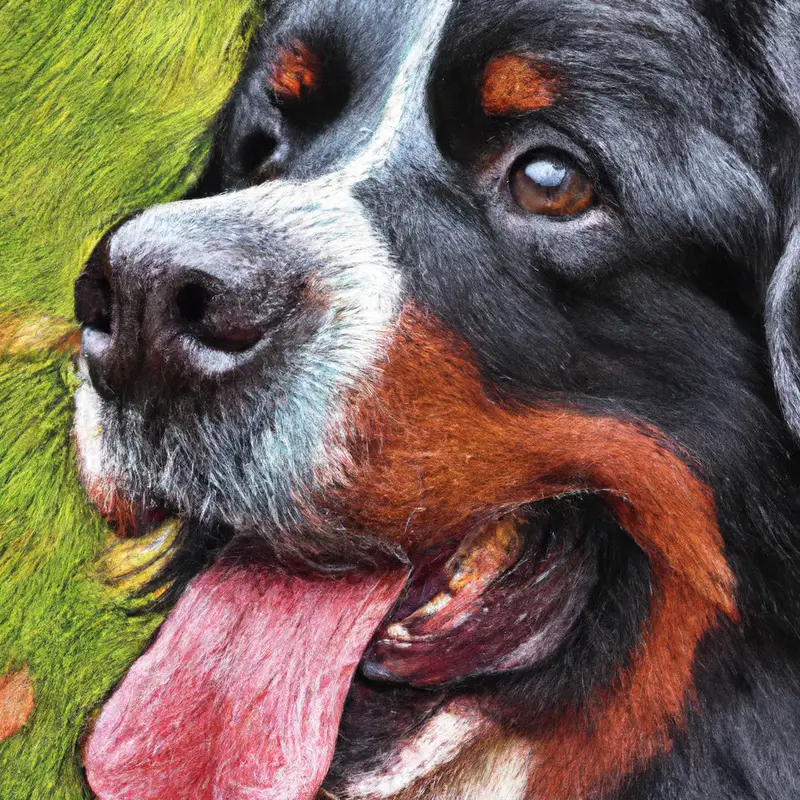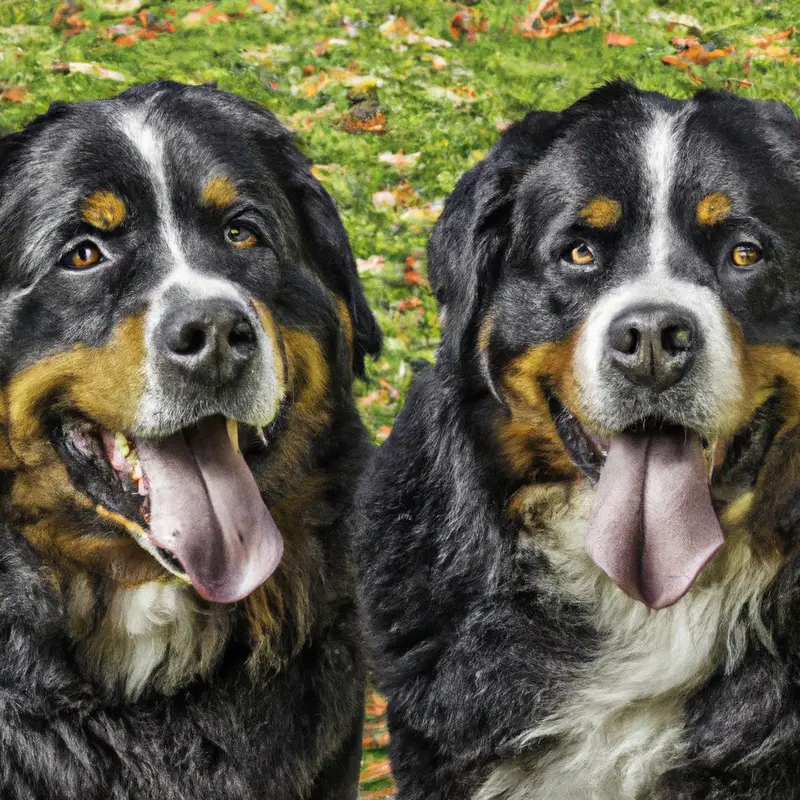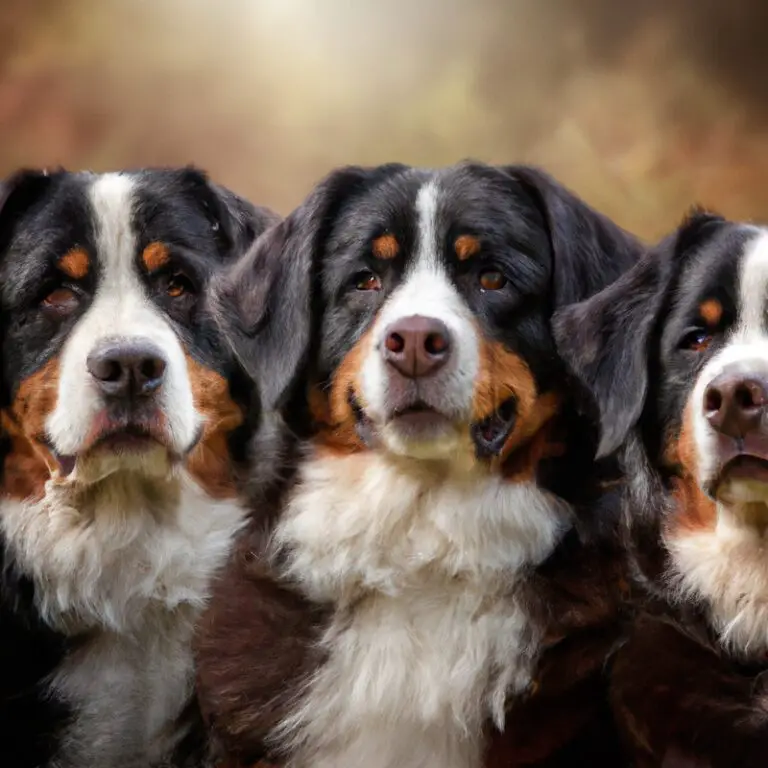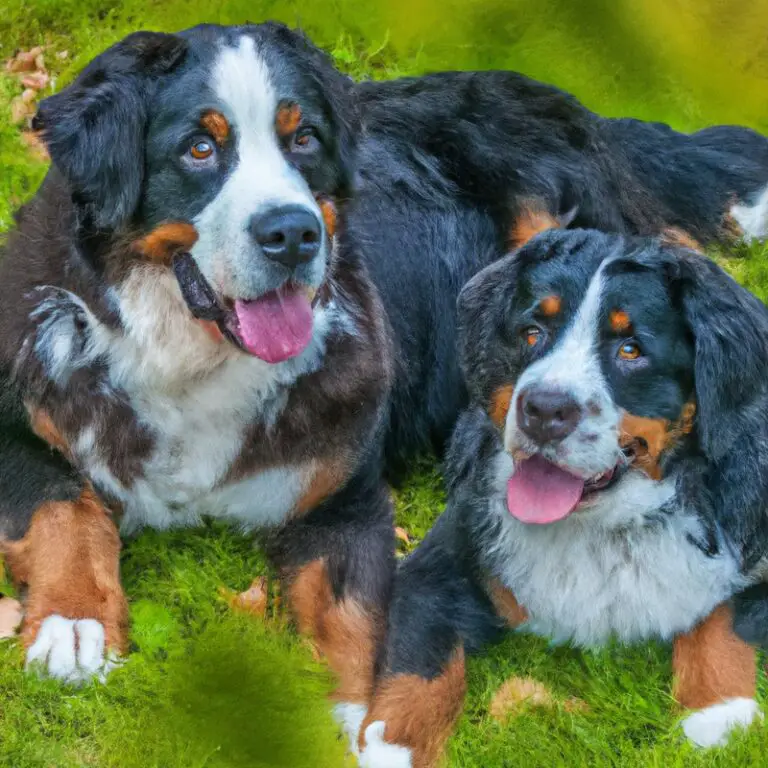Are Bernese Mountain Dogs Good With Other Pets?
Key Takeaways:
- Bernese Mountain Dogs are generally good with other pets when properly socialized.
- Early introduction to other animals can help foster positive relationships with Bernese Mountain Dogs.
- Supervision and training are key to ensuring peaceful coexistence between Bernese Mountain Dogs and other pets.
- Despite their generally gentle nature, caution should be exercised when introducing Bernese Mountain Dogs to smaller animals or prey-driven pets.
Are you considering adding a Bernese Mountain Dog to your family but concerned about how they will get along with your other pets?
Well, you’ve come to the right place! As a passionate animal lover with years of experience working with Bernese Mountain Dogs, I can confidently say that these gentle giants can indeed coexist harmoniously with other pets.
However, there are a few important factors to consider before introducing them and some useful tips to ensure a smooth transition.
In this article, we will explore the general temperament of Bernese Mountain Dogs towards other pets, specific considerations for different types of pets, and valuable tips for successful introductions.
So let’s dive in and discover how well Bernese Mountain Dogs can thrive in a multi-pet household!
| Yes | No | Depends | |
|---|---|---|---|
| Dogs | ✔️ | ❌ | ❓ |
| Cats | ❓ | ❌ | ❌ |
| Small mammals | ❌ | ❌ | ❔ |
| Birds | ✔️ | ❌ | ❔ |
Are Bernese Mountain Dogs good with other pets?
Factors to consider when introducing a Bernese Mountain Dog to other pets
When introducing a Bernese Mountain Dog to other pets, there are some important factors to consider:
- Personality and temperament: Assess each pet’s personality and temperament to ensure they are compatible. Bernese Mountain Dogs are generally sociable, but every dog is different.
- Proper introduction: Gradually introduce the pets in neutral territory to prevent territorial behavior. Allow them to sniff each other and supervise their initial interactions.
- Training and socialization: Ensure your Bernese Mountain Dog is well-trained and socialized. This will help them interact positively with other pets and follow commands during the introduction process.
- Size and energy levels: Consider the size and energy levels of the other pets. Bernese Mountain Dogs are a large breed, so it’s important to ensure they won’t overwhelm or intimidate smaller or more fragile pets.
- Supervision and gradual integration: Supervise all interactions between pets and gradually increase their time spent together. Provide separate resting areas and resources to avoid conflicts.
By considering these factors and taking appropriate steps, you can increase the chances of a successful introduction between your Bernese Mountain Dog and other pets.

Socialization and training for Bernese Mountain Dogs
Socialization and training are important for Bernese Mountain Dogs. It’s essential to expose them to different people, animals, and environments from a young age.
This helps them develop good social skills and prevents fear or aggression later on.
Positive reinforcement training methods work best with these gentle and intelligent dogs. Consistency and patience are key, as they can be sensitive.
Regular exercise and mental stimulation are also important for their well-being.
Providing them with a structured routine and plenty of love and attention will help them become well-rounded and happy companions.
General temperament of Bernese Mountain Dogs towards other pets
Bernese Mountain Dogs generally have a friendly and gentle temperament towards other pets.
They are known to be sociable and can get along well with other animals, including cats and smaller dogs.
However, it is important to introduce them to other pets gradually and ensure proper supervision during initial interactions.
Early socialization and positive reinforcement training can also help ensure a harmonious relationship between them and other pets in the household.

Specific considerations for different types of pets
When introducing a Bernese Mountain Dog to different types of pets, there are some specific considerations to keep in mind. For cats, it’s important to supervise their initial interactions and provide them with separate spaces if necessary.
Some Bernese Mountain Dogs may have a high prey drive, so gradual introductions and positive reinforcement are key.
With small mammals like rabbits or guinea pigs, it’s crucial to ensure their enclosure is secure and inaccessible to the dog. Creating a safe space for the small pets and supervising interactions closely is essential.
When introducing a Bernese to birds or reptiles, caution is necessary.
These pets may be easily stressed by the presence of a large dog, so they should be kept in separate areas out of reach. Overall, it’s important to monitor interactions and always prioritize the safety and well-being of all pets involved.
Gradual introductions, positive reinforcement, and providing separate spaces can help in creating a harmonious environment for everyone.

Tips for introducing a Bernese Mountain Dog to other pets
Slow and gradual introductions
Slow and gradual introductions are key when introducing a Bernese Mountain Dog to other pets. Take your time and allow them to acclimate to each other’s scents and presence before any face-to-face interactions.
Start by allowing them to sniff each other through a closed door or gate.
Gradually increase their exposure to each other in controlled environments. Supervise their interactions closely and be prepared to intervene if needed.
Patience is key in ensuring a positive and harmonious relationship between your Bernese Mountain Dog and other pets.
Supervision during initial interactions
During the initial interactions between your Bernese Mountain Dog and other pets, it’s important to supervise them closely. Keep a close eye on their body language and behavior to ensure a positive and safe environment.
Introduce them gradually and in controlled settings.
If any signs of aggression or discomfort arise, separate them immediately. Take it slow and allow them time to adjust to each other’s presence.
The key is to provide supervision and create a calm and controlled environment for everyone involved.
Proper training and obedience commands
Proper training and obedience commands are essential for a well-behaved Bernese Mountain Dog.
Start training from an early age to establish good habits.
Use positive reinforcement techniques, such as rewards and praise, to motivate your dog.
Teach basic commands like “sit,” “stay,” and “come.” Consistency and patience are key in training.
Practice regularly and gradually increase the difficulty of commands.
Seek professional help if needed, and remember to always be gentle and understanding with your pup.
Happy training!
Seeking professional help if needed
If you’re having trouble introducing your Bernese Mountain Dog to other pets, don’t hesitate to seek professional help. A qualified dog trainer or animal behaviorist can provide expert guidance tailored to your specific situation.
They can assess your dog’s behavior and offer effective strategies for successful introductions.
Remember, professional assistance can make a world of difference in ensuring the safety and harmony of all your furry friends.
Common challenges and solutions
Food aggression or resource guarding
Food aggression or resource guarding is a common behavioral challenge in dogs. It can occur when a dog becomes possessive over their food, toys, or other resources.
Signs of food aggression include growling, snapping, or even biting when someone approaches their food bowl or tries to take away their belongings.
To address this issue, it’s important to establish clear rules and boundaries from the beginning. Avoid free-feeding and establish a consistent feeding routine.
When feeding, it’s helpful to use food puzzles or feed your dog in a separate area away from other pets.
Seek professional guidance if the problem persists.
Dominance or territorial behaviors
Dominance or territorial behaviors can sometimes be a challenge with Bernese Mountain Dogs.
They have a natural instinct to protect their territory, which can lead to aggression towards other pets.
It’s important to establish yourself as the pack leader from the beginning and provide consistent training and socialization.
Supervision is key when introducing them to other pets, and slow introductions in neutral territory can help reduce potential conflicts.
Positive reinforcement training methods can also help manage and redirect any territorial behaviors.
Prey drive towards smaller pets
Prey drive towards smaller pets varies among individual Bernese Mountain Dogs. Some dogs may have a strong prey drive and see smaller pets as potential prey.
However, proper socialization and training can help minimize this impulse.
It’s important to introduce your dog to smaller pets early on and supervise their interactions. Use positive reinforcement and rewards to teach your dog appropriate behavior around smaller pets.
Additionally, providing mental and physical stimulation can help redirect their energy away from chasing smaller animals.
Always prioritize the safety of both your dog and smaller pets by supervising interactions at all times.
Frequently Asked Questions
Can Bernese Mountain Dogs live with cats?
Yes, Bernese Mountain Dogs can generally live with cats.
However, it’s important to introduce them properly and monitor their interactions at first.
Allow them to get used to each other’s scent, gradually introducing them in a controlled environment.
Ensure that both pets have their own separate spaces and resources.
Supervise their initial interactions to ensure a positive relationship is established.
Gradually increase their interaction time and always prioritize their safety and well-being.
Are Bernese Mountain Dogs good with other dogs?
Bernese Mountain Dogs are generally good with other dogs.
They are known for being friendly, sociable, and easygoing.
Bernese Mountain Dogs are not typically aggressive and are often quite gentle with other dogs.
However, as with any dog, proper socialization and training from an early age can help ensure positive interactions with other dogs.
It’s important to introduce Bernese Mountain Dogs to other dogs in a controlled and supervised environment to promote a harmonious relationship.
How do Bernese Mountain Dogs behave around smaller pets like rabbits or birds?
Bernese Mountain Dogs have a generally friendly and gentle nature, which can extend to smaller pets like rabbits or birds. However, it is important to remember that each dog has its own personality.
Proper socialization from a young age and supervision during interactions are crucial in ensuring the safety and well-being of all pets involved.
It is recommended to introduce them gradually and watch for any signs of aggression or excessive prey drive. With the right training and supervision, Bernese Mountain Dogs can coexist peacefully with smaller pets.
Final Verdict
Based on my expertise and experiences with Bernese Mountain Dogs, I can confidently say that they can be good with other pets if introduced and socialized properly.
Factors such as the temperament of the individual dog and the type of pet being introduced should be considered.
Slow and supervised introductions, along with training and obedience commands, are essential.
While challenges such as resource guarding or prey drive may arise, they can be addressed with patience and professional help if needed.
Ultimately, with the right approach, Bernese Mountain Dogs can form wonderful relationships with other pets.







